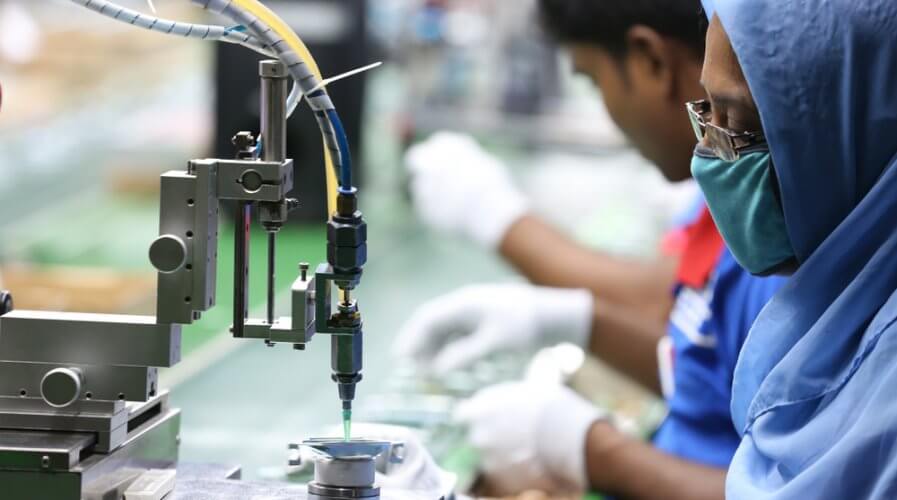
Production teams can benefit from the right analytics capabilities. Source: Shutterstock
Analytics-first strategies will drive greater outcomes in smart manufacturing
MANUFACTURERS are constantly looking for intelligent solutions that can transform operations, optimize supply, and boost returns.
To deliver on those goals, manufacturers require big data-powered metrics and analytics capabilities.
The shopfloors or plants of a manufacturing factory are the most data-rich environments and provide intelligent metrics that reflect performance rate, production rate, machine-load rate, and yield rate – all highly necessary to help employees scale their efforts towards achieving production goals.
Despite the increasing number of manufacturers investing in smart solutions, it seems like many are still unaware of the importance of data analytics in driving valuable outcomes.
Data analytics allows manufacturers to identify and evaluate progress, flaws, success, and silos in work processes accurately through metrics.
Manufacturers looking to deploy smart solutions must have analytics-driven strategies in place to ensure seamless integration and adoption. Here are some ideas to help get to grips with data:
#1 | Equip production teams with the right metrics
As smart manufacturing aims to support improvement efforts using lifecycle-based production methods, analytics must be prioritized to help teams make the right decisions.
Gross contribution margin analysis by product and segment, fill rate effectiveness as a percent of all orders, and order cycle time, are some of the metrics that can empower analytics capabilities which will then help scale the right changes.
Therefore, focusing on end-to-end processes-based metrics is key to realistic product improvement that is also measurable against the costs involved.
#2 | Eliminate vanity metrics
Sometimes, manufacturers overwhelm their production teams with vanity metrics believing that celebrating the small successes – even in siloed processes – would boost motivation.
However, in truth, such metrics only deter teams from measuring real progress in processes and create a false sense of optimization.
Vanity metrics should be replaced with collaborative processes rates and team-wide KPIs which can significantly boost performance and drive goal-oriented efforts.
Additionally, the silos that have been identified must be addressed and eliminated from the end-to-end processes to make room for collaborative improvements.
#3 | Empower teams with performance results
What manufacturers might miss is the fact that production teams need to be constantly motivated and guided with relevant feedback.
While gradual constructive criticisms help, teams would be more motivated and empowered when they have access to real-time results.
This would ensure them of their performance outcomes, workflow efficiency, and enable control over their efforts.
All in all, data analytics is a crucial asset that not only enables smart manufacturing but also allows tangible results to be drawn and improvements to be scaled.
Hence, an analytics-first mindset must be exercised by manufacturers and employees alike — to gain a more astute understanding of how goals can be achieved and success can be guaranteed.
READ MORE
- Ethical AI: The renewed importance of safeguarding data and customer privacy in Generative AI applications
- How Japan balances AI-driven opportunities with cybersecurity needs
- Deploying SASE: Benchmarking your approach
- Insurance everywhere all at once: the digital transformation of the APAC insurance industry
- Google parent Alphabet eyes HubSpot: A potential acquisition shaping the future of CRM


